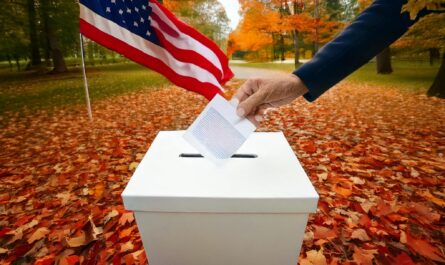Sen. Jason Brodeur of Florida (R-Lake Mary) introduced a bill on March 2, 2023, that would keep tabs on bloggers who write critical articles about Gov. Ron DeSantis, Attorney General Ashley Moody, and other members of the Florida executive cabinet or legislature and force them to register with the state or face penalties. The Florida Blogging Law is a chilling development in Florida.
Impact of SB 1316 On Bloggers In Florida
Florida State Legislature introduced a bill that could significantly impact the way bloggers cover the state government. The bill, known as Senate Bill 1316: Information Dissemination, seeks to regulate the content of blogs that cover the state government by requiring bloggers to register with the state, disclose their sources of funding, and follow specific guidelines on the content they publish. While the bill’s proponents argue that it aims to promote transparency and accountability in journalism, critics argue that it could have a chilling effect on free speech and independent reporting.
One of the primary critiques of SB 1316 is that it could limit the ability of bloggers to report on the state government independently. By requiring bloggers to register with the state, the bill could make it more challenging for independent journalists to operate, particularly if they cannot meet the state’s registration requirements. Additionally, by mandating that bloggers disclose their sources of funding, the bill could discourage bloggers from accepting donations or advertising revenue, which could impact their ability to sustain their operations.
Furthermore, the content guidelines outlined in the bill could also be problematic. While the bill aims to promote transparency, it could also be used to suppress dissenting opinions or criticism of the state government. For example, the bill requires bloggers to provide “balanced” coverage of state government activities. However, this requirement is vague and could be interpreted in a way that stifles critical reporting or opinions that do not align with the state government’s interests.
The potential impact of this bill on future content coverage of the Florida State government by bloggers is significant. If the bill passes, bloggers who cover the state government could be forced to comply with specific content guidelines or risk facing penalties, including fines or legal action. This could discourage bloggers from covering controversial topics or reporting on issues that are critical of the state government.
Similar to The Russian Blogging Law of 2014

The Russian Blogger Law of 2014 and the proposed legislation in Florida share some similarities in their attempts to regulate online speech, but they also differ in important ways.
Similarities:
- Both the Russian law and the Florida bill aim to regulate online speech, particularly on social media platforms.
- Both laws require online platforms to disclose information about their users and content to government agencies.
- Both laws impose fines and other penalties on online platforms that fail to comply with their requirements.
Differences:
- The Russian Blogger Law applies to individual bloggers and online media outlets with more than 3,000 daily visitors, while the Florida bill applies to all social media platforms, regardless of their size or user base.
- The Russian law requires bloggers to register with the government, while the Florida bill does not.
- The Florida bill proposes to prohibit social media platforms from banning political candidates, while the Russian law does not address this issue.
- The Russian law is much broader in scope than the Florida bill, as it also regulates online speech related to extremism, terrorism, and other topics considered harmful to society.
Overall, while both the Russian Blogger Law and the proposed legislation in Florida share the goal of regulating online speech, the Russian law is much more far-reaching and potentially intrusive, as it requires individual bloggers to register with the government and imposes restrictions on a much broader range of online content. The Florida bill, on the other hand, appears to be primarily focused on preventing social media platforms from censoring political candidates, and it does not have the same level of government oversight as the Russian law.
What Regulations Have Other Countries Enacted To Control Blogging Content Similar To The Proposed Florida Bill?

Several countries have enacted regulations to control blog content. Here are a few examples:
- China: China has some of the strictest regulations on blogging content in the world. The Chinese government heavily censors and monitors internet content, including blog posts. Bloggers in China are required to register with the government and are subject to harsh penalties for posting content that is deemed to be politically sensitive or offensive.
- Iran: In Iran, bloggers are required to obtain a license from the government to operate a blog. The government also monitors internet activity and has the authority to block access to websites and social media platforms.
- Turkey: In Turkey, the government has passed several laws that give it broad powers to censor and control online content, including blog posts. Bloggers in Turkey have been arrested and prosecuted for posting content critical of the government.
- Saudi Arabia: The Saudi Arabian government has strict laws governing internet content, and bloggers in the country are required to obtain a license from the government to operate a blog. The government has the authority to block access to websites and social media platforms, and bloggers who post content that is deemed to be offensive or critical of the government can face harsh penalties.
- Vietnam: In Vietnam, the government closely monitors and censors internet content, including blog posts. Bloggers are required to register with the government and are subject to prosecution for posting content that is deemed to be politically sensitive or offensive.
It is worth noting that many of these regulations have been criticized for violating freedom of speech and limiting the ability of bloggers to express themselves online.
Video: Florida Considering Crazy Law to Register Bloggers
Final Thoughts on Florida Blogging Law
In conclusion, SB 1316 raises several concerns about the impact it could have on independent journalism and free speech. While the bill’s proponents argue that it aims to promote transparency and accountability, it could have a chilling effect on the ability of bloggers to report on the state government independently. As the bill progresses through the legislative process, it will be important to monitor its potential impact on free speech and independent journalism.




